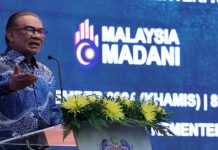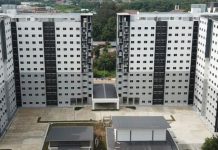Highlights:
- PM says China understood Malaysia’s move to cancel China-backed projects
- Government targets 2.8 per cent fiscal deficit this year
- Malaysia’s petrochemical industry to draw more investments
- Malaysia’s labour productivity per employee up 2.0 per cent in 2Q
Tun Mahathir: China understood reasons behind cancellation of projects
Prime Minister Tun Dr Mahathir Mohamad said two China-funded projects – the East Coast Rail Link (ECRL) project and a natural gas pipeline project in Sabah will be cancelled for now. He announced this at a media conference in Beijing during his five-day trip to China. He explained that the projects would be cancelled until Malaysia can afford them. Tun Dr Mahathir said China’s President Xi Jinping and Premier Li Keqiang understood the reasons behind the cancellation of the two Chinese government-backed projects. He said negotiations on compensation and other issues will be handled by government officials and the Chinese companies involved. Tun Dr Mahathir held talks with President Xi and Premier Li yesterday.
Government targets 2.8 per cent fiscal deficit this year
The government aims to cut the fiscal deficit to 2.8 per cent of gross domestic product this year. Finance Minister Lim Guan Eng said the target would be met through various measures, including cancelling and postponing unimportant low-multiplier government expenditure by RM10 billion. “The government is confident of saving more money in the future, especially as the government makes its procurement more transparent by the wider use of open tender process,” he said. He added that the need to optimise government expenditure calls for a genuine public-private partnership that splits the developmental cost between the two as this would help the government provide public infrastructure without having to spend too much of public resources. He said public-private partnerships are one of many measures to be discussed by the Public Finance Committee (PFC), which would be tasked to strengthen public finances by outlining the government’s medium-term fiscal plans. “The PFC would also help the government deal with the RM19.4 billion unpaid Goods and Services Tax refund, whereby, in order to manage the government’s fiscal position, disbursements will be phased gradually beginning next year. “Payments for small businesses will be prioritised, as they are likely to be most affected by the delay in the refund,” he added.
Malaysia’s petrochemical industry to draw more investments
The government expects the country’s petrochemical industry to attract more investment inflows with the development of the Pengerang Integrated Complex (PIC) project, as investments have already hit RM15.3 billion in the first four months of this year. Secretary General of the Ministry of International Trade and Industry Datuk Isham Ishak said the country had attracted 10 investments worth RM26 billion in the petrochemical industry last year. “As we get closer to full production in Pengerang, we hope it will be an impetus, a magnet for other investors using Pengerang as their supply of inputs to produce more downstream products, especially in the plastic production. The Petronas’ PIC project, which is 93 per cent completed as at July 2018, is on track for refinery start-up by the first quarter of 2019.
Malaysia’s labour productivity per employee up 2.0 per cent in 2Q
Malaysia’s labour productivity grew by 2.0 per cent per employee in the second quarter (2Q) of 2018 and recorded positive growth across all main and priority sub-sectors. International and Trade Industry Minister Darell Leiking (pic) said the mining and quarrying sector recorded the highest productivity growth at 5.2 per cent, followed by construction (4.0 per cent), services (2.5 per cent), manufacturing (1.5 per cent) and agriculture (1.3 per cent). “Productivity growth is the key to sustainable living standards and Malaysia needs to explore new ways of challenging the frontier. “We will continue to implement various initiatives and activities to provide a conducive business environment to support industries and enhance productivity,” said Darell. He said modernising business regulations is one of the initiatives that will lead to a more competitive business environment. A total of 32 projects under Modernising Business Licensing, Reducing Unnecessary Regulatory Burden and Cutting Red Tape Programmes were completed during 2017. “It was estimated that these projects resulted in potential compliance cost savings of RM1.2 billion,” he said. He added that new technologies must be mastered to enhance the nation’s productivity and competitiveness in order to achieve the annual target growth of 3.7 per cent.














